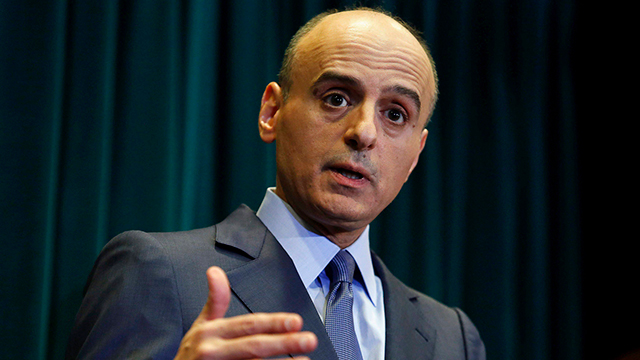Why Saudi Arabia will not accept another ceasefire
Jamal Khashoggi/Al Arabiya/Al Arabiya
Tuesday, 19 May 2015
Saudi King Salman and the whole of Saudi Arabia want to stop the war in Yemen, but if it has to, Riyadh will be decisive and patient until victory is achieved. Saudi Arabia will most probably reject further calls for a ceasefire, even if they appear “humanitarian” or aimed at giving diplomacy a chance. It will reject such calls because its rivals, whether the Houthis or ousted Yemeni President Ali Abdullah Saleh, do not take the humanitarian aspect into consideration as they deliberately shell civilians. Their deceit was clear during the humanitarian truce that Riyadh unilaterally declared last Tuesday. The Houthis, Saleh’s forces and their ally Iran completely violated the truce. The former two targeted Saudi territories and killed civilians, while the latter sought to break the siege on Al-Hodeidah port, testing the Saudi will as if it wants to escalate the situation. It is a model that keeps being repeated elsewhere. In Syria, President Bashar al-Assad and his regime lie and deceive while using barrel bombs to target every city and neighborhood they lose control of. In Iraq, sectarian militias kill people and wreak havoc – such incidents have become frequent, and no one has been held accountable or tried. This constitutes one “Iranian camp,” which includes a sectarian government in Iraq, an Alawite regime in Syria, and popular mobilization forces and militias that act upon hatred and myths. So in Yemen, Saudi Arabia must expect an ugly repetition of everything that has happened and is happening in Iraq, Syria and Lebanon.
Pressure
Pressure on Saudi Arabia comes from friends and enemies alike, from foolish people and those with good intentions. However, this must not weaken Saudi determination. Stopping the war now would be a big loss, because the Houthis would re-arm, make up for their losses and repeat their aggression against the kingdom and Yemen. Stopping the war now would be a big loss, because the Houthis would re-arm. I was in Doha last week participating in an annual forum that brings together dozens of retired Western politicians and researchers. Many of them lack confidence that Riyadh can end the war on its terms, and fear that it will be dragged into a battle beyond its control. These negative impressions add pressure on the kingdom because they speak to media outlets and research centers in their countries. They write commentaries on the war as experts on our region, and some provide consultations to their countries’ leaders. As such, Riyadh must show its capabilities and vision more clearly and actively.
While in Qatar, I met a young Yemeni minister whom the Houthis expelled from his ministry. He abhors them, but he does not sympathize with the war. He fears for his family and bitterly talks about injured civilians, fuel shortages and closed hospitals. He does not care if a Saudi pilot is concerned about avoiding civilian casualties because the minister knows that blowing up an arms depot on the outskirts of a residential neighborhood will harm some residents even if they are not the target. He is not willing to forgive the foreigner, even if the latter fights to achieve a dignified life without Houthi guns pointed at Yemeni heads. We need a humanitarian Decisive Storm and better rhetoric to win Yemeni hearts and minds. The 1 billion riyals ($266.65 million) that King Salman allocated last week for a Yemen relief center must reach the country in the form of food or fuel. Our Yemeni brothers must not starve. It is a difficult mission amid Houthi insolence and rejection of peace, but the kingdom must do this because the war is not against Yemen or the Yemenis, but for them.
Confrontation
Iran is also exerting pressure. Its desire for confrontation with the kingdom was shown via its insistence to send a jet to Sanaa airport, though it was prevented from doing so. Iran then tried to send a cargo ship to forcefully enter Al-Hodeidah port, but the Saudi navy prevented it.Tehran wants one of their boats or ships to be hit so as to escalate the situation into a regional crisis that its ally Russia can describe as “threatening world peace,” and thus address it at a U.N. Security Council session that further complicates matters.
The Houthis want a ground assault. They are under the delusion that if they violate the ceasefire, they will drag Saudi Arabia to Yemen’s mountains and into street battles. They do not care if Yemen is destroyed – what matters to them is bloodying Saudi Arabia. Saudi intellectuals are also exerting pressure and warning of a ground assault. They recall the famous American statement: “We mustn’t send our sons to war.” They say it in English as they puff on cigarettes and worry those whose sons are on the frontlines. Operation Decisive Storm must go on until victory is achieved, no matter what. If we stop, we will go back to square one.






















